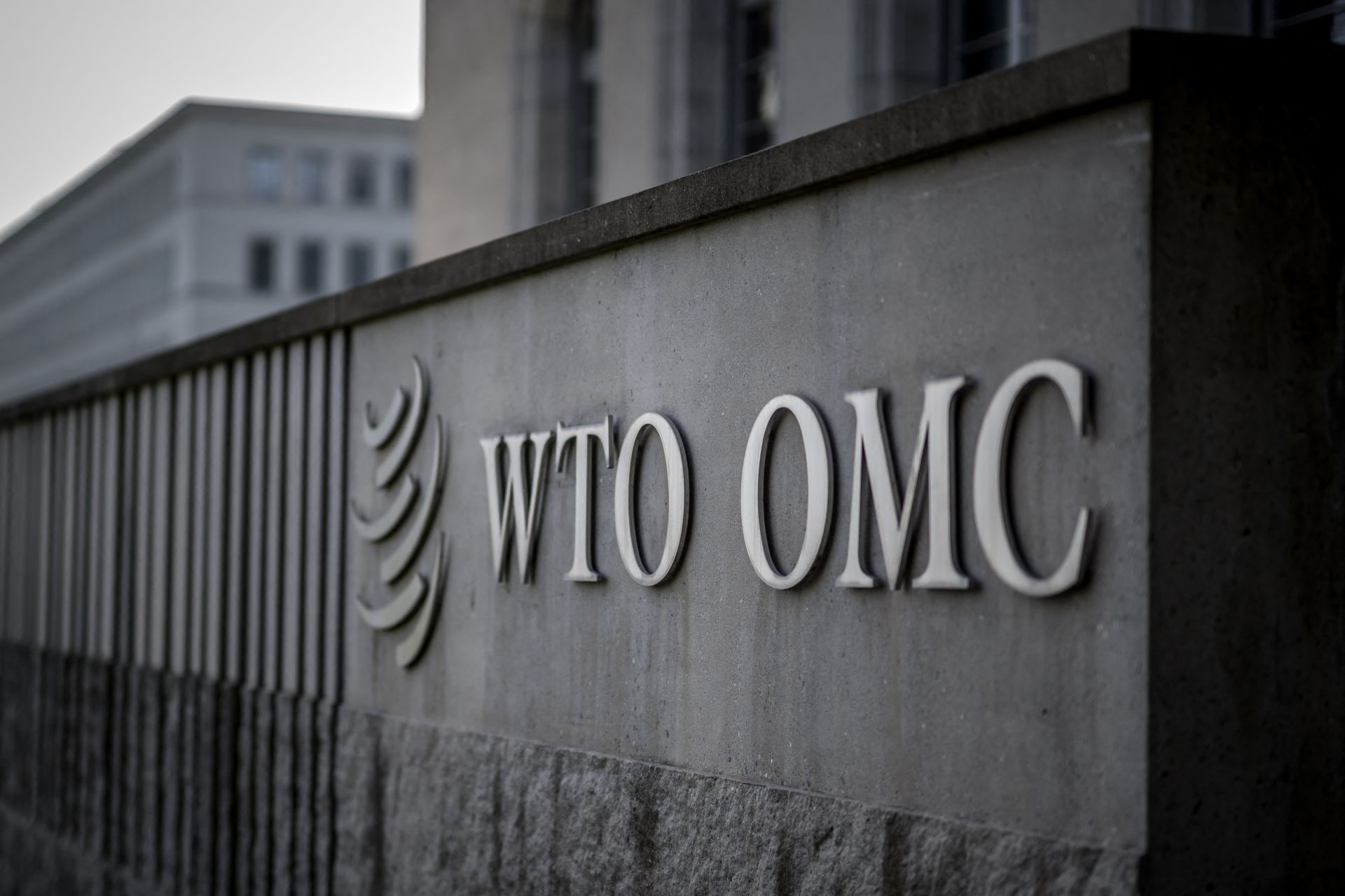- Home
- Middle East
- WTO Powerless Against Protectionist Wave

A picture taken in Geneva on February 5, 2024, shows the logo of the intergovernmental World Trade Organization (WTO) at its headquarters. ©Fabrice Coffrini / AFP
Often referred to as the "global trade police," the WTO is actually bound hand and foot by its members, with Washington's actions especially leaving it all but powerless against the protectionist wave washing over the globe.
A number of countries have begun filing complaints with the World Trade Organization, charging that the steep tariffs wielded by US President Donald Trump violate international trade rules.
But the WTO finds its room for maneuver constricted, not least by Washington's move under the first Trump administration to hamstring its dispute settlement mechanism by blocking the appointment of appeal body judges.
Here are some key facts about the Geneva-based organization.
WTO is its members
The WTO is not part of the United Nations system. And unlike other international organizations, like the World Bank and the International Monetary Fund, its power is not delegated to its chief or a board of directors.
Rather, it is governed by consensus by its 166 member states, who together represent 98 percent of global trade.
This governance model means that the WTO Secretariat is primarily an advisory body for the organization's committees, with no right to comment on the compliance of policies with WTO rules.
Nevertheless, WTO chief Ngozi Okonjo-Iweala, formerly Nigeria's finance minister, knows how to make her voice heard.
Since Trump's reelection, the first woman and first African to hold the WTO reins has taken a cautious and gradual approach. Without much success so far.
She initially stated last November that she was "eager" to work with Trump and considered it "a bit premature" to comment on his tariff threats.
And after he took office in January and began acting on those threats, she urged countries to "keep calm" and warned against "tit-for-tat retaliation."
The moribund arbitrator
The WTO's dispute settlement system—the cornerstone of international trade regulation—has been weakened over a number of years.
Washington brought the WTO's Appellate Body to a grinding halt in December 2019 after years of blocking the appointment of new judges.
The practice began under Barack Obama and continued during Trump's first presidency and then during Joe Biden's four years in the White House.
The United States had long accused the appeals court of unfair treatment and overreach, insisting it could not rule on issues involving "national security."
During a WTO meeting last month, the new Trump administration once again said that Washington was refusing—for the 85th time—to accept a proposal put forward by 130 other members calling for the selection of appellate judges to resume.
This blockage is possible because WTO rules require full consensus among all 164 member states for any decision.
Into the void
Without a functioning appeals system, the decisions of the WTO's lower Dispute Settlement Body (DSB) are left hanging.
This means countries cannot move to the next step of requesting compensation for tariff measures deemed to violate international trade rules.
And countries can continue to file appeals to the paralyzed Appellate Body, effectively leaving the cases in limbo.
More than 30 dispute panel rulings have so far been appealed "into the void," according to the WTO, including some filed by the United States itself.
In the meantime, nearly 30 WTO members, including the European Union and China, have developed an alternative appellate process allowing some cases to move forward.
But the United States has not signed up.
With AFP
Comments